|
Oct.18/2014 1177247-5-1
(Part 16 at 12:26) **Ralph Baldwin on "media ecology" 13:58 "reorientation and awakening" 20:56 hot and cold media ("help" vs. "fire!") 21:00 FW (movie [fantasy] and TV [young are grim and serious] [Thunders 9 {Ondt and Gracehoper} and 10 {television} {applause}]) 23:17 Seurat and Rouault (light on and light through/rear projection) (making process for the audience in Poe and the Symbolists) (data/form [hot photo and movie] vs. information/structure [cool TV]) 30:52 media ecology/discovery is for HCE 35:09 black and white sound (much gradation and modulation, foreground and background) 36:21 postmodern MM 39:23 protecting the underwater landscape 40:26 DeGaulle joke 40:40 "stream of consciousness" (film's effect on prose/see "Prufrock" and the involving, syncopated "Blues" [abrupt encounter of forms]) 41:52 Alex Leighton ("to the blind all things are sudden") (ancient seer and insights) 45:24 effects of the tape recorder (John Cage) and photograph 46:20 programming the human environment 48:05 "wild track" (history of art forms) 48:44 Earth will be considered our origin 49:59 the effects of radio being put around film (dwelled more on the shot ["Dr. Zhivago", Fellini and Bergman], the shot became inclusive [see FW] as in cartoon and TV, the "thing"/research novel and interest in raw data and facts among the young [going Oriental], the existentialists and the new mood [LSD scrubs off "the tape of personal awareness"]) 50:57 McLuhan calls his lecture a "tour" 58:41 the movie as a repeat of ordinary life ("parahodos", prose Realism, and "the great age of satire" [Pepys and Defoe]) 58:50 Oct.18/2014 1177247-5-2 (Part 17 at beginning for 54 seconds [completing Part 16 and then a longer section of this end of Part 16 is repeated at 24:05] and then at 27:05) Paul Valery (Symbolist poet) quotation on the movie as a form of mechanical, visual, memory storage (which points to the more comprehensive computer storage) 27:11 "entropic" electric circuitry (the safety car is entropic/turning inward) 28:04 movie as, at first, iconic and then to the "rise of the visual" (high definition [hi-fi]) ("psychosomatic effects") 29:11 Innis, Havelock, and Barfield (visual effect of phonetic literacy) 30:03 McLuhan says "the medium as the message/massage" 31:06 McLuhan repeats "Joyce's ULYSSES mimes the retrieval of the involving Homeric gestalt/orality" from Oct.4 ("complicated issues") 31:24 the artist (play) vs. writing out your tax form (work) 2:28 children are geniuses until age five or six 33:00 McLuhan describes "media ecology" 33:18 Aristotle on plot in the "Poetics" vs. the episodic 33:37 McLuhan on the non-visual "coincidental" (overlaying) 34:05 manuscript as "tapestry" ("textura") 35:14 silent reading and grammar vs. slang 35:46 the inauguration of the "Rearview Mirror" (repeated the next day at Fordham) (Garden of Eden mentioned at 38:04) (climaxes with photo and film) 36:43 Victorian novels all begin back 30 or 40 years before the publication date of the book (Scott and Dickens, etc.) 39:21 photo Realism evoked the turn toward structural forms (heuristic probing, discovery, and prediction as opposed to a wrap-around "comfortable dreamworld" and "proof" [rearview mirror]) in the arts ("Madame Bovary") (Art and Science joined hands) (Joseph Conrad and Flaubert's "Sentimental Education" boast on the Franco-Prussian War) 40:05 Pop Art (comics, etc., are "avant-garde" in their "artistic mode") 42:51 Dickens and Dostoevsky, Poe and Baudelaire (gangster/cowboy movies, the Beatles, and Chaplin made playfully outside of the studio) ("putting on" the public) 43:32 Question Period begins 46:05 Fragonard, Boucher, and Mozart 47:15 McLuhan says he is not an expert 48:35 people are anarchists perceptually (only trained faintly in books) (Gurdjieffian somnambulism) 49:07 environmental "volapuk" (see FW) 51:19 "psychosomatic" torture 51:42 studying media "like a surgeon" 52:29 anaesthesia's horrors 52:41 no movie effect when on TV 52:58 McLuhan chides the questioner for "giving up too early" 54:19 the need for gestalts/pattern-recognition ("which we all do") at very high speeds (McLuhan mentions speed-reading) (the newspaper as a Surrealist poem or "happening" [no story-line, just a date]) 55:05
0 Comments
listen the audio below: Payday NOTE:Timing based on Payday archives. Jan.24/2015 1177118-7-1 June/66 with Tony Schwartz: (Part 19 at 32:42) accepting the world as a recording studio means the environment is an art form (due to "the net of electric information") 32:42 McLuhan explains Pop Art ("we then suddenly become tremendously self-conscious of all sounds and effects of that environment as if it were a work of Art") 33:25 McLuhan then reads various short statements on: humor, Art, and games 34:00 more on games, golf, and Art 35:45 "Rocket" Richard, games, industrial cultures, and Art 38:25 the "newspaper game", bad news explained, and the British and Americans 40:51 "the medium is the massage", games, boxing, and wrestling 43:22 "Help!" vs "Fire!" 44:54 more on humor, fun and play 46:47 SPORTS ILLUSTRATED and TV 47:07 paradoxical reversals leading to "growing up" as our main job 48:28 the entire world's population can live in Manitoba, "population explosion", Black Hole of Calcutta, "infinite mass" and wars, and nose counting vs. "creatures of mood" (a block of color as in my Tiny Note Chart), "Playback" (focus groups) vs. cancer research, McLuhan is not FOR what he talks about, judging becomes an outer activity, end of capital punishment (HCE is guilty), the Uncertainty Principle 49:47 consciousness as process 56:31 Jan.24/2015 1177117-3-1 June/66 Miscellaneous fragments edited by Tony Schwartz: (Part 20 at 2:41)
artwork by Charles Gatewood tattoo Mike made of Bromsilver
Doctor “Fingers” Schafer, the Lobotomy Kid, rises and turns on the Conferents the cold blue blast of his gaze:
“Gentlemen, the human nervous system can be reduced to a compact and abbreviated spinal column. The brain, front, middle and rear must follow the ade-noid, the wisdom tooth, the appendix…. I give you my Master Work: The Complete All American De-anxietixed Man….” Blast of trumpets: The Man is carried in naked by two Negro Bearers who drop him on the platform with bestial, sneering brutality…. The Man wriggles…. His flesh turns to viscid, transparent jelly that drifts away in green mist, unveiling a monster black centipede. Waves of unknown stench fill the room, searing the lungs, grabbing the stomach…. Schafer wrings his hands sobbing: “Clarence! How can you do this to me?? Ingrates!! Every one of them ingrates!’ The Conferents start back muttering in dismay: “I’m afraid Schafer has gone a bit too far….” “I sounded a word of warning….” “Brilliant chap Schafer… but…” “Man will do anything for publicity….” “Gentlemen, this unspeakable and in every sense illegitimate child of Doctor Schafer’s perverted brain must not see the light…. Our duty to the human race is clear….” “Man he done seen the light,” said one of the Negro Bearers. “We must stomp out the Un-American crittah,’ says a fat, frog-faced Southern doctor who has been drinking corn out of a mason jar. He advances drunkenly, then halts, appalled by the formidable size and menacing aspect of the centipede…. “Fetch gasoline!” he bellows. “We gotta burn the son of a bitch like an uppity Nigra!” “I’m not sticking my neck out, me,” says a cool hip young doctor high on LSD25…. “Why a smart D.A. could…”
Listen the audio below:
Charles Gatewood by Sean Hartgrove JM: In the Introduction, you say that Naked Lunch deals with the “algebra of need” and that junk is “the mold of monopoly and possession,” by which you seem to imply that the junkie is representative of everybody else in an economy where power is centralized and monopolized. Is that correct? WB: Well, by the “algebra of need” I simply meant that, given certain known factors in an equation and the equation comprising a situation of absolute need — any form of need — you can predict the results. Leave a sick junkie in the back room of a drugstore and only one result is possible. The same is true of anyone in a state of absolute hunger, absolute fear, etc. The more absolute the need, the more predictable the behavior becomes until it is mathematically certain. - interview with William S. Burroughs, which originally appeared in Jaguar Magazine, 1966 Listen the audio below: Tony Schwartz, Marshall McLuhan, and John Culkin at Tony Schwartz's famous basement studio on W 56th Street in New York, 1967 Jan.24/2015 1177119-8-1 June/66 with John (editor at POPULAR PHOTOGRAPHY) at Tony's: (Part 18 at 17:44 and Part 19 at 2:41 [finished playing]) McLuhan mimics "equitone" in "The Wasteland" 17:54 McLuhan mimics Joyce ("kenner... that's the he and she of it" in "Finnegans Wake") 18:57 the effect on the class war and brogues (why Blacks are musical) 19:08 the effect of recorded poetry on people/readers (the effect of Garrett) 20:05 the artist "explores" his environment (the average person wraps the environment around him) 20:33 poet as "delinquent"/"sleuth" like Bogart or Bond 20:57 McLuhan recalls the "Jack Benny" show (on radio it was hi-fi while on TV Benny slowed down ["no hurry"]) 21:09 "actuality/reality broadcasts" (at the end of WW2) by Norman Corwin vs. "Container Corp." packaging 21:44 McLuhan says Alex Comfort (a poet) was involved in the Pre-War project called "Mass Observation" 22:40 Tony mentions the Orson Welles' "Mars Broadcast" as very "ridiculous" today 23:22 Tony comments on Glenn Gould (McLuhan says Gould is "still a very academic performer") 23:45 the effect of radio/sound movies on "the photographic pitch" 24:24 McLuhan mentions the human's natural synesthesia 24:59 Tony just bought a Color TV (refers to the "clearer, more normal" celebrities on the Johnny Carson show when on Color TV) 25:11 McLuhan predicts Color TV "will change everything" 26:18 McLuhan puts down the phrase "information theory" ("it's not a very useful phrase because it misleads people") ("they mean 'structure' for 'information'") 26:28 Tony mentions "something McLuhan did at Channel 13" 27:09 why kids buy cartoons and not picture books (clear, distinct, precise scientific statement/fact excludes, cartoons include and allow "for anybody to get into the act" ) 28:13 the periphery of the eye sees black & white and movement, the center of the eye (the cones) see color (involving) 28:44 McLuhan again predicts Color TV "will completely change the programming of TV" 29:02 McLuhan says "Johnny Cage" 29:27 a policeman via Tony told McLuhan about yelling "help" (too involving [cool] "for people already involved far too much" via TV) (a pun in non-verbal form) 29:32 "we supply 'color'" 30:30 "north wind vs the sun" joke 33:39 "message in the bottle" (involving like "the overheard") 34:33 "red herring" pun 34:46 noisy commercials are too hot 35:33 the new trend towards wanting to be a hermit (Trappist monks) 35:50 planning for the June 27th lecture at MOMA (the effect of sound on pictures) 36:44 the big bell ("for whom the belles toil") is communal and participatory 37:25 the high-pitched, little chapel bell is specialized (the single message beamed at a particular sector ) 37:44 The Russian filmmakers were obsolesced by the Talkies 38:08 McLuhan's "Photography: Brothel without Walls" chapter (McLuhan forgets the Movie chapter subtitle) inspired by Rene Clair 40:01 photo and movie "penetrate the world of flesh" (like a brothel) 40:57 hi-fi photography is getting more tactile and textural/surfaces (like flesh) like stones via hi-fi (no privacy possible anywhere like the telephone) 41:21 McLuhan says he never opens a book once it's published 42:07 McLuhan says his statements ("experimental") are intended to be very controversial (Menippean) 43:02 McLuhan refuses flattery from John even though McLuhan doesn't do photography 43:36 McLuhan says Canada has only the Mounted Policemen, "Norrie" Frye ("the archetypal expert"), and the DEW-Line 43:48 Norman McLaren (Expo'67 mentioned) 44:02 the TV generation often use a public forum for private expression ("public news as private message") (like the English in the "TIMES" until recently) 44:32 McLuhan turns down offer because he has too many books to finish 46:36 "world as studio and/or campus for dialogue via the tape recorder" 47:00 "human interest" means "involvement" (fill-in) (not in a news story) 47:26 Abstract Art means "leaving a lot of things out so one can get in the picture" 48:12 Tony points out McLuhan's obscene-like gestures ("using all one's senses at once" at 48:39) 48:16 slow, non-visual kids (as in "backward territories like France and Italy" ["gesticulate wildly"]) should use trampolines to improve their reading skills (isolating one sense) 48:45 "feedback (looping back) is a form of profound involvement" 49:11 Tony suggests making a mistake in their next commercial to involve the audience 49:43 any correct flowing performance is purely "mechanical" compared to a mistake 49:57 a small child will hear the icebox door closing and opening as the dominant sound in his/her environment (not traffic, not voices) 50:06 modern Greek movies like "Electra" and "Medea" are done out-of-doors (evoking tragic emotions) and make sense once one is outside an enclosed theatrical space like our Westerns ("private emotions become environmental [role-like emotion] via unenclosed space which shapes emotion") 50:47 legitimate theaters cannot go near "that dimension of legitimate tragic emotion" like the Western can (Greek movies are similar because they have no sets except the rocks and the ground) 51:56 the photographic image is changed when one gets away from enclosed spaces 52:33 the science of linguistics (to arrest certain rhythms and patterns for study - study not semantic meaning but gestures and rhythms of language) came out of the tape recorder (now possible to know how children learn the "mother tongue" in a few years) 52:54 Tony complains that linguistics doesn't use the tape recorder creatively outside the classroom 54:31 McLuhan recommends the Opies' children's lore book (the same jokes, games, and gags are everywhere) 54:55 no mistakes made in slang (except by anthropologists) 56:12 you can put the old furniture into the new ("that's the rearview mirror") but not the new into the old 57:02 the boundaries between the written (sight) and the oral (sound) are beginning to disappear (the boundaries between the public and the private [the inviolate] are also disappearing via photography) 57:42 our lives are more and more synaesthetic 58:51 Part 19 at 2:41 McLuhan says he increasingly relies on the kids for his jokes 3:32 McLuhan tells the difference between "huh uh" (always making discoveries) and "uh uh uh..." (hesitating... as does Mayor Lindsay) 3:48 the difference between "that's interesting" (John) and "low whistling" (McLuhan says it's better than verbalizing) 5:04 McLuhan makes an endearing laugh 6:21 McLuhan mentions a new pop song called "It's All About Marvin" (Alan Sherman?) and predicts it will be a hit 6:25 somebody mentions a new Canadian NFB film, "NEVER TO RETURN" 6:50 the community/tolling bell (low gong, inclusive) vs. alarm bell ("Beat it!", not inclusive)/classroom bell ("Get up!", high pitch) 7:03 Allan Loye of McGraw-Hill at yesterday's conference explained how typewriters helped the poorer students (who use all their senses and learn French easily while the better students are specialist in their sensory life [eye-biased] and can't learn French) 7:41 McLuhan's French friend says, "There are no words in French, there are only rhythms" (English people can't hear French) 9:01 linguists say that all languages are rhythms and not words 9:13 McLuhan says he can only make out a little bit of French (he never studied languages) but he can do dialects 9:18 TV generation loves to put on/mimic dialects 10:19 TV is an "empathic medium" 10:28 Jan.24/2015 1177119-10-1 June/66 with John (editor at POPULAR PHOTOGRAPHY) and others at Tony's: (Part 19 at 10:38) radio/movie soundtrack has been absurdly retained by TV (McLuhan suggests electronic music as soundtrack for TV) 10:38 musical counterpoint is "making" 12:35 "medium is the message" explained as the old medium is an art form/content of the new medium 12:57 "medium is the massage" explained as an infallible teaching machine and as a process (not the content) 13:15 Plato wrote down the "oral" Socrates 14:04 printing did nothing but medieval literature for 200 years 14:14 the safety car is the end of the car ("rocking the bandwagon") 14:20 McLuhan predicts 3-dimensional transportation (vertical) 15:12 discomfort of traveling to and from the airport 15:52 "an environment is a process that just twists the guts of people" (which is its "message") 16:15 the students today have no identity but they can see other people much more clearly (folk musics are rearview mirror) 16:27 people are making a "body image" daily and it's environmental/invisible 17:19 McLuhan complains about the air-conditioning everywhere that aggravates his allergies and affects his voice 18:12 McLuhan just "samples" in his studies to create contours and structures but he doesn't fill them in 18:43 McLuhan says he has made a video but hasn't seen himself on multiple-screen (cites the Hercules quotation) 19:10 TV should be multiple-screen (no story line as in the movie) 19:48 "TV is being held to the one screen by movie form, rearview mirror" 20:08 McLuhan says he's been thinking about the effect of the computer on the museum 20:38 McLuhan complains about Gerald Stearn's new "Hot and Cool" book 21:15 somebody tells McLuhan to visit THE VILLAGE VOICE office and upset them because their journalist wrote an article about McLuhan on a NYU panel 21:41 the computer as a "source of discovery" ("banging various things against each other") rather than a mere storage system like a museum 23:38 the pun and a slip of the tongue 24:12 TV as a liturgical means is more involving than the distracting church (replaced by the "visual" church?) 24:40 somebody brings up Judson Church and its artists' rituals (not Rev. William Glenesk) 25:46 McLuhan cites Canada as having the advantage of backward countries 26:12 McLuhan says one can't have the legal system on TV (McLuhan gives a wise warning) 26:56 McLuhan mentions Groucho Marx 29:08 McLuhan talks about Harley Parker's new book on museums (see ART IN AMERICA, March/April'66, "The Electronic Museum") 29:13 Sheila & Wilfred Watson with Marshall McLuhan listen below: April 4/2015 1176535-6-1 May 10/66 Miscellaneous fragments edited by Tony Schwartz: (Part 16 at 6:18) McLuhan makes the best explanation for the relevance of rock 'n' roll and Rock 8:03
Tom Hiddleston, the star of the film High-Rise, read an audio book version of the novel. Here's a juicy extract.
loading...
loading...
Jan.10/2015 1176561-3-1 Annenberg School of Communications, University of Pennsylvania: (Part 13 at 38:58 and Part 14 at 12:45) "home is where you hang your head" 53:25 "from the land of the DEW-Line" 53:54 "blowing both horns of his dilemma" 54:02 the audience is about to become workforce 55:14 proposal to use the audience in scientific research (inevitable in 2 or 3 years) (after the quiz shows' fiasco) 55:35 "the Gut Gal" vs. "Bat Man" 57:22 Part 14 at 12:45 Kuhn, Barfield, Havelock, Innis, and Hall 14:11 McLuhan explains why his "image" is contemptible 17:28 audience as workforce (a "happening") ends the Nielsen ratings (discovery takes over in education) 19:12 ads become more important than the products 20:24 McLuhan's book with Jovanovich 21:08 the effect of Xerox (predicts the Internet) 21:40 end of the "storyline" in the Arts (many complex jokes ["instant humor"] as in FINNEGANS WAKE) 22:44 end of all "lines" 23:54 humor as a "cultural protective layer" against grievances 25:06 McLuhan's definition of "happening" (the audience and actors [see readers and authors at 28:29] are one) ("the meaning of meaning" in the 1920s is a happening like a newspaper) 26:00 a happening can't be verbalized because it's a case of "all-at-onceness" (doesn't have a verbal form possible to it) 26:46 an example of McLuhan's audience not knowing he's serious and clinical 26:57 an example of McLuhan's Menippean satire of his audience 27:43 Zappa (audience joins in) 28:06 all media and Arts are like the safety car/pin (a NEW art form like ads [see Picasso 50 years ago]) 28:33 Truman Capote or the reader was the murderer in "IN COLD BLOOD" 30:22 Oedipus was the first "youdunnit" (but today nobody "did it") (no SIX DEGREES OF SEPARATION = "in any highly involved, intricate feedback network") (Bob is explained ["I did it"]) 30:51 existentialists explained 31:24 the new electric "dimension" (ask iON about this) 32:00 the "role" takes over from the "job" 32:31 "role" is defined 32:57 the computer DID NOT obsolesce the "job" 33:18 "myth"'s retrieval explained ("it's a 'happening' and instant grasp") ("mythic" Baby Boomers via "information overload") 33:50 Paul Goodman's GROWING UP ABSURD (Paul did not like McLuhan's explanation) (nobody has explained this to the Baby Boomers) 34:35 Bonanza as "science fiction" (19th Century) for the Third World 35:45 moving from the unfamiliar to the familiar (the mirror of Perseus is RVM) 38:14 why "silent movies" come back vs. color TV 39:18 Jan.10/2015 1176561-5-1 Annenberg School of Communications, University of Pennsylvania: (Part 17 at 47:57 and Part 18 at 7:32) retrievals as a technical art form ("as Innis tells us") 48:10 Earth becomes an "old nose cone" a second example of McLuhan's audience not knowing he's serious and clinical 48:46 TV becomes an art form under satellite conditions 49:42 a big reversal in "content": the unconscious vs. the human consciousness 50:29 the big-hearted surgeon joke about "touching up the X-ray" (McLuhan predicts more and more "symbol manipulation") 51:07 Pop Art ("your environment becomes an art form [programmed]") and Happenings (society as an art form) are a reflex of the satellite environment (see my Charts) 51:28 Jacques Ellul's definition of "propaganda" ("propaganda ends when dialogue begins") 52:06 "talking back to the media" (see Theall's "talking") 52:59 "Egyptian" art (totalism) retrieved 53:33 McLuhan predicts "Black Power" in Africa/America and Chinese "nostalgia/old dreams of primitive integrity and perfection" 53:57 Stalin's "Pan-Slavism" (1910) explained (McLuhan chuckles at 55:02) 54:43 retrieval of BATMAN due to color TV 55:22 end of the Neolithic planter/specialist and return of the Paleolithic hunter (the "James Bonds" since Sherlock Holmes are "mythic", "Egyptian" hunters ("crossing boundaries" [as does the charismatic journalist] explained at 57:09) 56:02 "bad news" is a "real" interface/encounter (artist is anti-social), ads/"good news" are one-way (McLuhan claims "a thing that has mystified me for years") 57:30 the anti-social child/sleuth/martyr/criminal/reporter/artist/poet sees "the Emperor's new clothes" 58:04 McLuhan says he's not supporting "just being contrary and ornery" 59:14 Art as "the blood bank of great moments of living in the past" is obsolete, Art has to be a "probe" (helps "to SEE") and a "means of perception and discovery" now 59:21 Part 18 at 7:32 the new importance of "Art" (never before as significant "sheer knowing, survival value, and navigational aid") 8:36 McLuhan ends with the Malraux/De Gaulle joke 9:24 the Panel begins 12:10 "self-expression" is obsolete, people now want to join themselves as a "corporate" group with "cosmic energies" ("joining the rhythms of the world around") 17:10 the Foxtrot vs. the Watusi 17:45 Panelist says McLuhan is confusing like George Gobel (American comedian) 19:39 McLuhan says he never reads book reviews about himself 24:24 specialist form of study vs. total-field study 24:32 McLuhan doesn't want to be caught NOT looking 25:41 the moment (1880-90, the Constructivists) of "Abstract Art" 29:38 McLuhan refutes the "technological determinism" charge 32:33 environments are NOT "around us" 33:21 McLuhan agrees with William Burroughs' definition of "causality" ("cannibalistic") 34:28 more on "Abstract Art" as a cartoon via "the direct interface of tactile surfaces" 38:31 DR. ZHIVAGO, and more on BATMAN's costume as like an iconic cartoon 39:17 is TV less linear? 40:14 Jan.17/2015 1176561-7-1 Annenberg School of Communications, University of Pennsylvania: (Part 8 at 37:50 and Part 9 at 4:39) the effects of the railway the vertical plane and the Roman arch "God is dead" 46:11 the Beatles and "living mythically" Batman and Dracula movies on TV 51:15 other effects of TV Brecht and comics no value judgments the meaning of meaning and memory 58:27 Part 9 at 41:39 thinking and consciousness TV in the classroom listen the recording below:
the world as a recording studio
17:01 humor as a mark of sanity 18:08 games as extensions, art forms, and mass media 18:52 shouting "fire!" for help 29:08 more on humor 31:01 "Sports Illustrated" Magazine 31:22 the instant playback 32:03 everybody now has the work of royalty 32:45 "the entire population of the world can be comfortably fed and housed in West Germany or Montana" 34:01 definition of "mass" as "acquiring infinite mass" (see the illusion of "the population explosion") 34:37 how elections are obsolete 36:00 using TV to have the audience solve top problems 37:14 McLuhan says he's not necessarily positive about his suggestions 38:20 inner judgment of people is now externalized and instant 38:54 people are now terrified of capital punishment (nobody is to blame anymore) 39:22 the Uncertainty Principle and how it applies to "information" 40:03 the final extension/externalizing of "the activity of consciousness" 40:44
listen recording below:
|
AudioArchives
August 2018
|
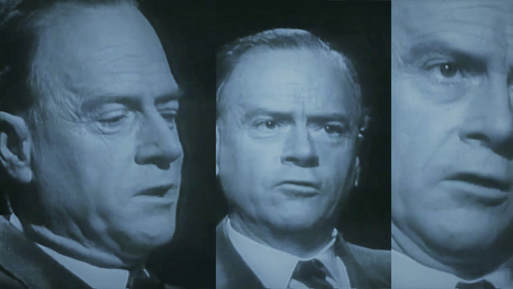
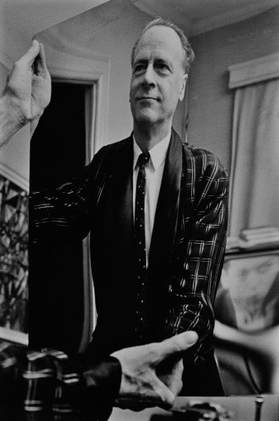
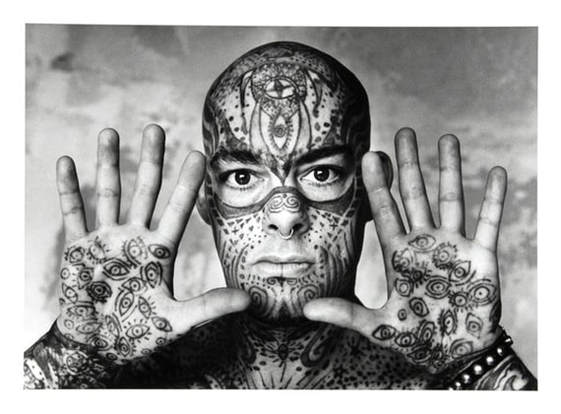
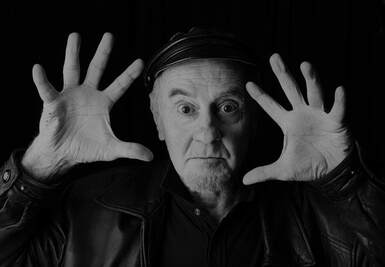
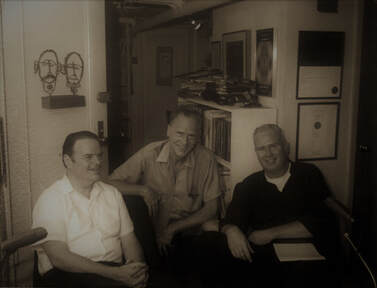
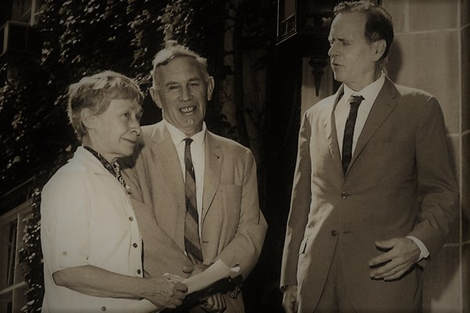
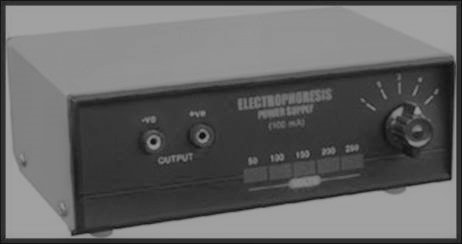
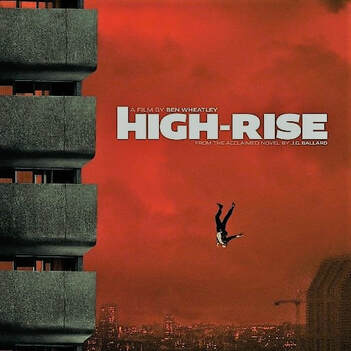
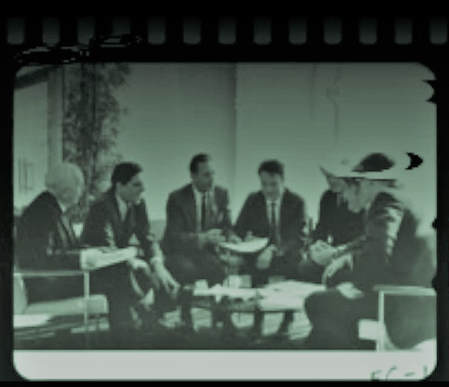
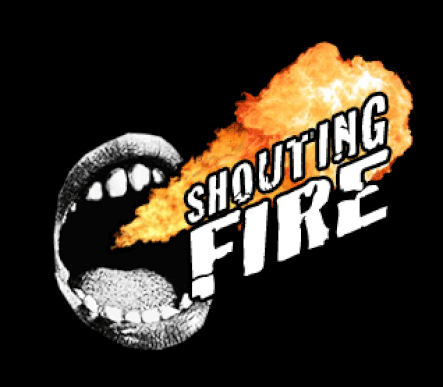
 RSS Feed
RSS Feed
